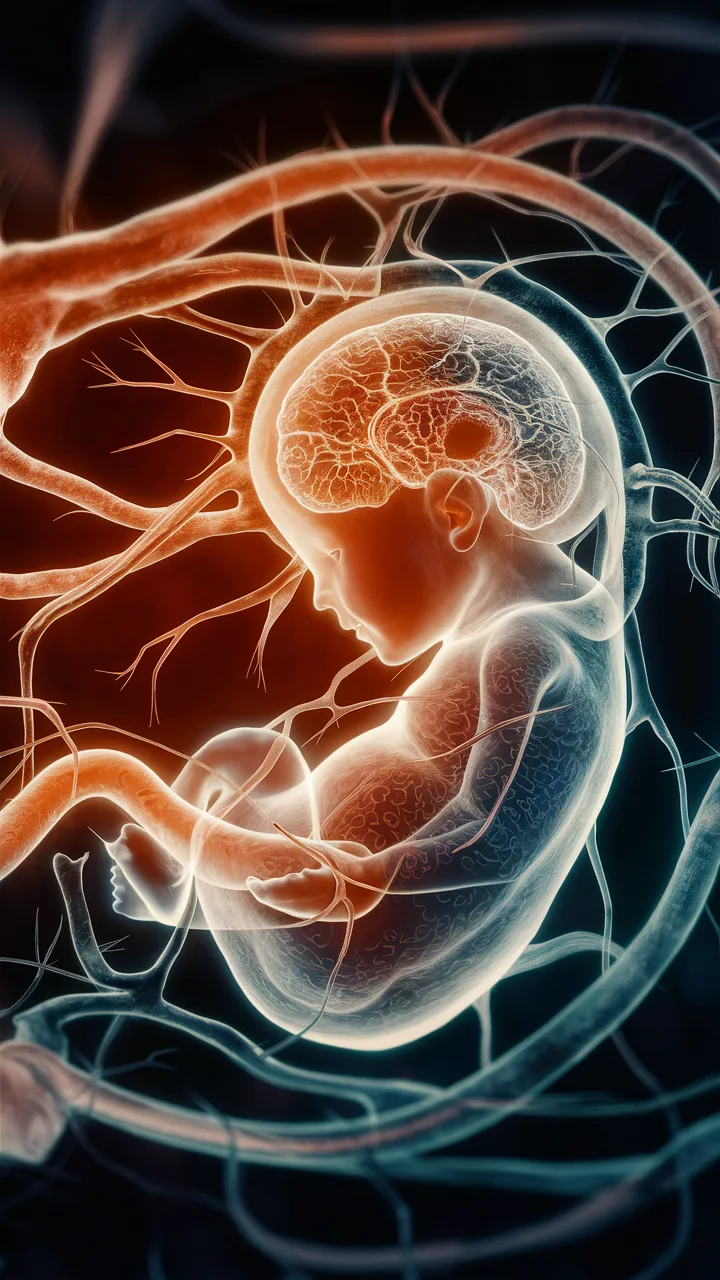Proper nutrition is crucial for a healthy pregnancy, ensuring that both you and your baby receive the necessary nutrients for optimal growth and development. With so much conflicting information available, it can be challenging to know what to eat and what to avoid.
That’s where your pregnancy nutrition guide comes in. This guide is designed to provide you with clear, evidence-based advice to support your health throughout this exciting journey.
From the moment you discover you’re expecting, it’s essential to make informed dietary choices. Your pregnancy nutrition guide will walk you through each trimester, offering specific tips and meal plans tailored to meet your changing needs.
Whether you’re dealing with morning sickness, craving unusual foods, or just trying to ensure you’re getting enough vitamins and minerals, this guide has got you covered. By following these essential tips, you can confidently nourish your body and support your baby’s development, leading to a healthier, happier pregnancy.
First Trimester Nutrition Tips:
The first trimester is a critical period of development for your baby, and maintaining a balanced diet is essential. Your pregnancy nutrition guide emphasizes the importance of consuming nutrient-dense foods that support both your health and the early growth stages of your baby.

Key Nutrients and Their Sources
Your body needs particular nutrients throughout the first trimester to support the quick development of your unborn child’s organs and tissues. The importance of folic acid is highlighted in your pregnancy dietary guide, as it helps prevent neural tube abnormalities.

To make sure you’re getting enough, include leafy greens, beans, and fortified cereals in your diet. Iron is also necessary for the production of healthy red blood cells. Add beans, spinach, and lean meats to your diet to increase your iron levels. Nuts, whole grains, and bananas are good sources of vitamin B6, which helps treat nausea.
Managing Morning Sickness Through Diet
Morning sickness can be challenging, but your pregnancy nutrition guide offers practical strategies to cope. Eating small, frequent meals can help stabilize your blood sugar levels and reduce nausea. Ginger tea, crackers, and bland foods like toast can be soothing.
Avoiding strong odors and spicy, fatty foods can also minimize discomfort. Staying hydrated is vital; sip water, herbal teas, or clear broths throughout the day.
Sample Meal Plan for the First Trimester
A meal plan that is well-balanced guarantees that you get the nutrients you need. A spinach and mushroom omelet is a great way to start the day while following your pregnancy diet advice, which is high in folate.

Enjoy a banana and some almonds as a mid-morning snack to get your B6 on. For lunch, try a lean chicken salad with mixed vegetables and quinoa for iron. Snack on yogurt and fresh berries in the afternoon.
Steamed broccoli and sweet potatoes paired with grilled salmon for dinner could provide a variety of vital vitamins and minerals. You can preserve your health during the critical first trimester and promote your baby’s development by adhering to these pregnancy dietary guide guidelines.
Second Trimester Nutrition Tips:
The second trimester is often considered the most comfortable phase of pregnancy, as many women experience a decrease in morning sickness and an increase in energy levels. During this time, it’s important to focus on nutrition to support the baby’s rapid growth and your own health.
Your pregnancy nutrition guide provides essential tips to help you navigate this critical period with confidence.
Adjusting Nutrient Intake as Your Baby Grows
Your body needs extra nutrients to support your baby’s growth as they develop. The nutrition recommendation for pregnant women suggests consuming approximately 300–350 more calories per day, with an emphasis on nutrient-dense foods instead of empty calories. The growth of your baby’s tissues and organs depends on protein.
Include foods such as beans, almonds, dairy products, eggs, and lean meats. Incorporate dairy products, fortified plant-based milk, and leafy greens into your diet to get enough calcium, which is also essential for robust bones and teeth development.
Foods to Boost Energy Levels
Maintaining high energy levels is essential during the second trimester. Your pregnancy nutrition guide suggests eating complex carbohydrates, which provide a steady energy release throughout the day. Grains like oatmeal, brown rice, and wheat bread, are good choices.
Additionally, fruits and vegetables like apples, bananas, carrots, and bell peppers provide vitamins, minerals, and fiber to keep you feeling full and energized. Healthy fats, found in avocados, nuts, and olive oil, are important for brain development and sustained energy.
Sample Meal Plan for the Second Trimester
You can satisfy your increased nutritional needs with the use of a balanced meal plan. Starting the day with a nutrient-dense breakfast, such as oatmeal topped with fresh fruit and nuts, is advised by your pregnancy nutrition guide. Enjoy Greek yogurt with honey and granola for a mid-morning snack.
A substantial salad made of mixed greens, grilled chicken, avocado, and an assortment of vibrant veggies might be served for lunch. You can stay full with sliced veggies and hummus for an afternoon snack. Dinner might be quinoa and steamed vegetables with a lean protein, such as grilled salmon.
By following these second-trimester tips from your pregnancy nutrition guide, you can ensure that both you and your baby receive the necessary nutrients for healthy growth and development.
Third Trimester Nutrition Tips:
The third trimester is a period of significant growth and development for your baby, and your body needs the right nutrition to support this final stage. Your pregnancy nutrition guide focuses on ensuring you get the essential nutrients to prepare for labor, delivery, and the postpartum period.
Preparing for Labor and Delivery
As you approach your due date, it’s important to eat foods that provide sustained energy and support your body in preparing for labor. Your pregnancy nutrition guide recommends consuming complex carbohydrates like whole grains, sweet potatoes, and legumes.
These foods release energy slowly, keeping you fueled and reducing fatigue. Additionally, eating protein-rich foods, such as lean meats, eggs, and tofu, can help maintain your strength and support muscle repair and recovery during and after childbirth.
Foods That Aid in Fetal Development
The growth of your baby’s brain and storage of fat depends heavily on the third trimester. The importance of omega-3 fatty acids is highlighted in your pregnancy nutrition guide, as they are critical for the development of the brain and eyes.
Include flaxseeds, chia seeds, and fatty seafood like salmon in your diet. Since your baby’s iron stores must survive for the first six months of life, iron is another essential nutrient. Eat more iron-rich foods in your meals, such as spinach, red meat, and fortified cereals. To improve the absorption of iron, combine them with foods high in vitamin C, such as citrus fruits.
Easy-to-Prepare Meals
Simple meals can make life easier, especially with the physical demands of the third trimester. Your pregnant nutrition guide offers easy, quick, and nutrient-dense options. For a nutrient-rich breakfast, start your day with a smoothie made with Greek yogurt, berries, and spinach.
Think about having a quinoa dish with grilled chicken and mixed veggies for lunch. For a quick energy boost, eat some dried fruit and nuts. A straightforward stir-fry with tofu, broccoli, and brown rice for dinner might provide a good source of vitamins, fiber, and protein.
These pregnancy nutrition guide’s third-trimester suggestions can help you and your unborn child stay well-nourished and prepared for their arrival.
Hydration During Pregnancy:
Staying properly hydrated is crucial during pregnancy, as water plays a vital role in maintaining your health and supporting your baby’s development. Your pregnancy nutrition guide emphasizes the importance of adequate hydration and offers practical tips to ensure you stay well-hydrated throughout your pregnancy.
Importance of Staying Hydrated
During pregnancy, your body’s demand for water increases to support the increased blood volume, amniotic fluid, and metabolic needs of your growing baby. Your pregnancy nutrition guide underscores that adequate hydration helps in the formation of the placenta, which delivers nutrients to your baby.
It also aids in digestion, helps prevent constipation, and can reduce the risk of urinary tract infections. Dehydration can lead to complications such as headaches, nausea, and dizziness, making it essential to prioritize your fluid intake.
Recommended Fluids and Hydration Tips
The nutrition guidance for pregnant women suggests consuming 8 to 10 glasses of water per day, although your actual requirements may be higher based on factors such as physical activity, climate, and general health.
Think about hydrating with milk, fresh fruit juices, and herbal teas in addition to water. Another great option is coconut water, which is high in electrolytes and supports the proper fluid balance in your body.
Your pregnant nutrition guide recommends eating foods high in water, such as cucumbers, oranges, and melons, bringing a reusable water bottle with you throughout the day, and setting regular reminders to stay hydrated. Steer clear of caffeine-containing beverages in excess as this might cause dehydration and raise your risk of certain pregnancy problems.
Hydration Benefits
Maintaining proper hydration can alleviate common pregnancy discomforts such as swelling, fatigue, and overheating. It also helps in keeping your skin hydrated and can reduce the risk of preterm labor.
Your pregnancy nutrition guide emphasizes that well-hydrated mothers are more likely to experience smoother labor and recovery periods.
By following these hydration tips from your pregnancy nutrition guide, you can ensure that both you and your baby remain healthy and comfortable throughout your pregnancy. Proper hydration is a simple yet powerful way to support your overall well-being and promote a successful pregnancy journey.
Dealing with Cravings and Aversions:
Cravings and aversions are common experiences during pregnancy, often driven by hormonal changes. Your pregnancy nutrition guide offers strategies to manage these effectively, ensuring you maintain a balanced diet for your and your baby’s health.
Healthy Alternatives for Common Cravings
Cravings for sugary, salty, or fatty foods can be intense. Your pregnancy nutrition guide suggests satisfying these cravings with healthier alternatives. If you crave sweets, opt for fresh fruits like berries or a small portion of dark chocolate.
For salty cravings, choose nuts or whole-grain crackers instead of chips. If you’re craving fatty foods, avocados or yogurt-based dips can be nutritious options. These alternatives can help you avoid excessive empty calories and provide essential nutrients.
Strategies to Handle Food Aversions
Aversions to certain foods, particularly those with strong smells or tastes, are also common. Your pregnancy nutrition guide advises finding substitutes to ensure you still receive the necessary nutrients.
If you can’t tolerate meat, try plant-based protein sources like beans, lentils, or tofu. For aversions to vegetables, smoothies can be an excellent way to incorporate greens without the strong taste. It’s also helpful to prepare foods differently, such as steaming or baking, to make them more palatable.
By addressing cravings and aversions with these tips from your pregnancy nutrition guide, you can maintain a nutritious diet that supports your pregnancy and promotes the health of your baby.
Conclusion:
Maintaining proper nutrition and hydration during pregnancy is essential for your health and your baby’s development. By following your pregnancy nutrition guide, you can navigate each trimester with confidence, manage cravings and aversions effectively, and stay well-hydrated.
Prioritizing nutrient-rich foods and adequate fluid intake ensures you provide the best support for your growing baby and prepare your body for labor and recovery. Embrace these tips to enjoy a healthier, more comfortable pregnancy journey.
FAQs:
- What are the key nutrients I need during pregnancy?
- Essential nutrients include folic acid, iron, calcium, protein, and omega-3 fatty acids. These support your baby’s development and your overall health.
- How can I manage morning sickness through diet?
- Eat small, frequent meals, opt for bland foods like crackers, and stay hydrated. Ginger and vitamin B6-rich foods can also help alleviate nausea.
- What should I avoid eating during pregnancy?
- Avoid raw or undercooked meats, certain fish high in mercury, unpasteurized dairy products, and excessive caffeine. These can pose risks to your baby’s health.
- How much water should I drink daily while pregnant?
- Aim for 8-10 glasses of water daily. Staying hydrated supports increased blood volume, amniotic fluid levels, and overall well-being.
- How can I handle strong food aversions?
- Find substitutes to ensure you get the necessary nutrients. For instance, if you can’t tolerate meat, try plant-based proteins like beans and lentils. Smoothies can help incorporate vegetables without strong tastes.

1 thought on “Your Pregnancy Nutrition Guide: Essential Tips for a Healthy Pregnancy”